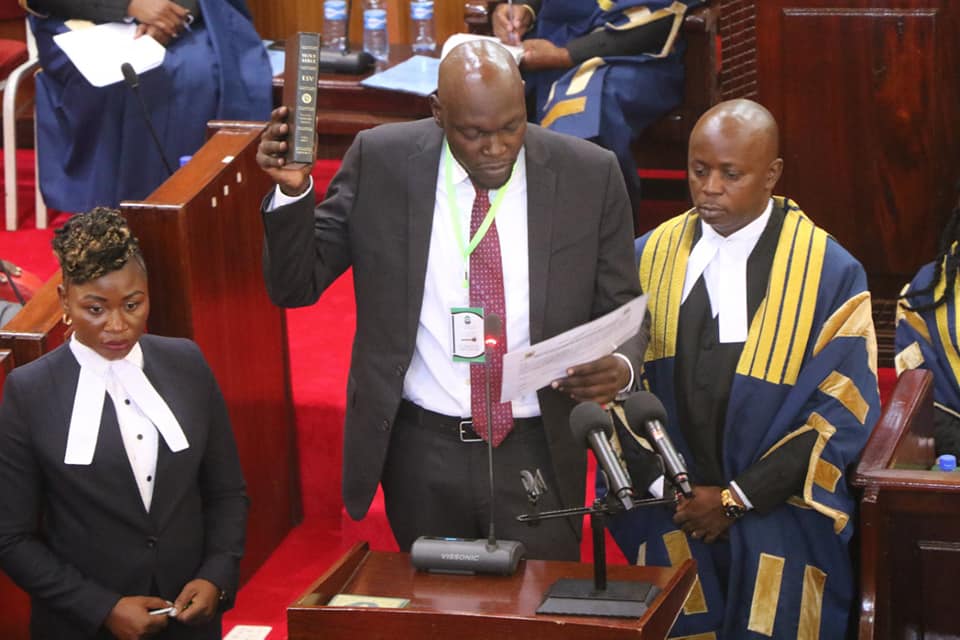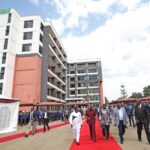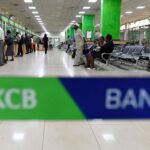Busia County, located in the western part of Kenya and rich in agricultural potential, is led by Governor Paul Otuoma, who was elected on August 12, 2022, on an ODM ticket. The County Executive Committee (CEC) members, appointed to various critical ministries, play a pivotal role in implementing the county’s development agenda and in driving essential services and programs for the citizens. This article provides an overview of Busia’s CEC members, their designated roles, and details about their compensation.
Busia County Executive Committee Members and Portfolios
The Busia County Government is organized into ten primary ministries, each managed by a CEC member responsible for distinct areas of governance and service delivery. Here is the updated list of Busia County’s CEC members, alongside their respective ministries:
| Ministry | CEC Member |
|---|---|
| Water, Irrigation, and Natural Resources | Arthur Papa Odera |
| Finance, ICT, and Economic Planning | Topister Wanyama |
| Lands, Housing, and Urban Development | Peter Odima |
| Health and Sanitation | Beatrice Nakholi |
| Public Service Administration and Gender | Andrew Nakitare |
| Sports, Culture, and Social Services | Paul Ikwenye |
| Education and Vocational Training | Pamela Awuor |
| Agriculture, Livestock, Fisheries, Climate Change, Blue Economy, and Agribusiness | Dr. Siplicious Mukok |
| Trade, Industry, Investment, and Cooperatives | Omuse Olekachuna |
| Transport, Public Works, and Energy | Andrew Meso |
Each of these ministries focuses on addressing specific needs and opportunities within Busia County to foster growth, improve service delivery, and promote sustainable development.
Key Ministries and Initiatives
- Water, Irrigation, and Natural Resources
Led by Arthur Papa Odera, this ministry is essential in managing Busia’s water resources and irrigation infrastructure, which are vital for agriculture and daily life. Key initiatives focus on improving water access, expanding irrigation to enhance food production, and implementing conservation programs to sustain natural resources. - Health and Sanitation
Beatrice Nakholi oversees the Health and Sanitation ministry, focusing on expanding healthcare services across the county. This includes upgrading health facilities, expanding maternal and child health services, and promoting community sanitation initiatives to prevent disease outbreaks and improve overall health standards. - Agriculture, Livestock, Fisheries, Climate Change, Blue Economy, and Agribusiness
This ministry, headed by Dr. Siplicious Mukok, takes a comprehensive approach to Busia’s agriculture and natural resource management. Current initiatives include introducing sustainable farming practices, promoting climate resilience among farmers, and supporting the blue economy through lake fisheries. Agribusiness is also encouraged to provide value-added opportunities and boost local revenue. - Finance, ICT, and Economic Planning
Under Topister Wanyama, this ministry is responsible for budgeting, financial planning, and economic policy. It also focuses on digital transformation, with initiatives aimed at enhancing e-governance to streamline county operations and improve access to public services for citizens. - Transport, Public Works, and Energy
Headed by Andrew Meso, this ministry is critical in maintaining and developing Busia’s infrastructure. Current projects include upgrading road networks for better connectivity, expanding public transportation, and pursuing energy initiatives to ensure affordable and reliable access, particularly in off-grid areas.
County Executive Committee (CEC) Salaries in Kenya
CEC members in Kenya receive a standardized salary as per guidelines from the Salaries and Remuneration Commission (SRC). Each CEC member earns Ksh 404,250 per month, which is broken down as follows:
| Salary Component | Amount (Ksh) |
|---|---|
| Basic Salary | 242,550 |
| House Allowance | 45,000 |
| Market Adjustment | 81,700 |
| Total Monthly Salary | 404,250 |
This salary is structured to provide fair remuneration while ensuring that counties can sustain their wage bills.
Governor Paul Otuoma’s Vision for Busia County
Governor Otuoma’s administration has set a forward-looking agenda aimed at improving the economic and social conditions in Busia County. The administration’s priority areas include:
- Enhancing Agriculture and Food Security: Given the county’s agricultural potential, there is a strong focus on modernizing agriculture, expanding irrigation, and introducing agribusiness initiatives to support farmers and reduce food insecurity.
- Improving Access to Healthcare: Expanding health facilities and healthcare services, especially in rural areas, is critical. This includes increasing access to maternal and child healthcare, as well as addressing preventative health through public awareness.
- Promoting Youth Empowerment through Education and Skills Training: With a significant youth population, the county is investing in vocational training and education to boost employment prospects and empower young people to be economically active.
- Expanding Infrastructure and Energy Access: Through road improvement projects, public transportation enhancements, and renewable energy initiatives, the administration aims to connect communities, attract investments, and improve the quality of life.
With a diverse team of CEC members working across these sectors, Busia County is on a path toward economic growth and improved service delivery, fostering a supportive environment for residents and businesses alike.





